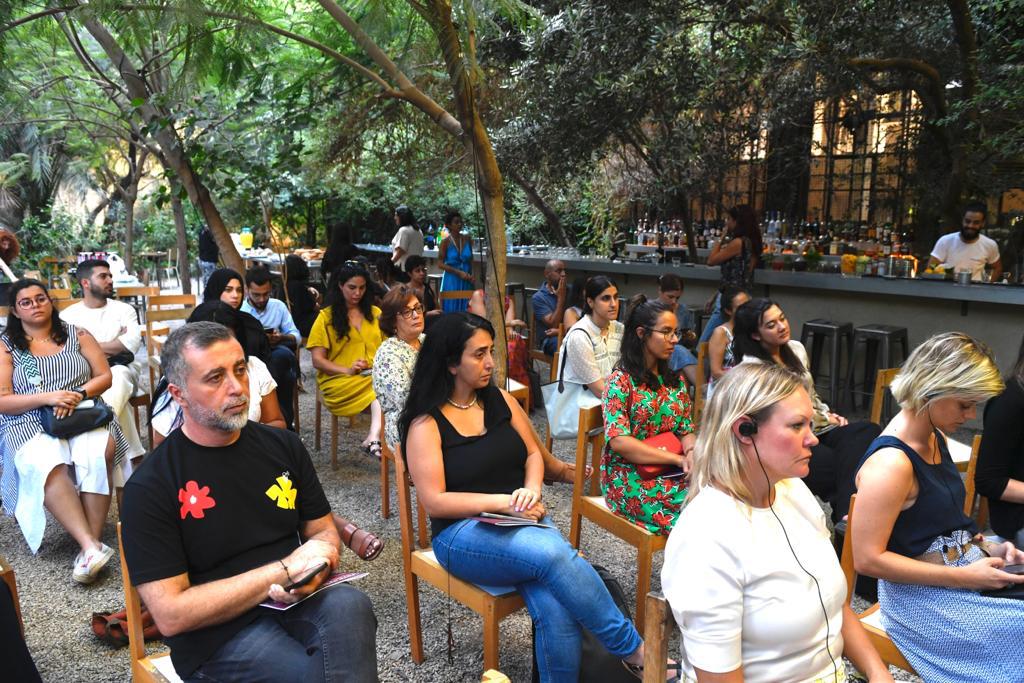On the 16th of August 2022, Fe-Male with the support of the Women’s Peace and Humanitarian Fund and UN Women Lebanon organized a final event within the project titled “Beirut Blast: The Untold Stories of Women and Girls and their Role in Recovery” at Union Marks at Bourj Hammoud. More than 50 participants representing embassies, international and local NGOs, media, and official institutions… attended the event to learn about the gender media audit of the Beirut blast aid, response and coverage conducted by Fe-Male and to take part in a discussion with esteemed speakers Mirella Abou Khalil, journalist, and Fe-Male vice president, Dr. Halima Kaakour, MP and university professor, and Myriam Sfeir, the director of Arab Institute for women at the Lebanese American University and Sobhiya Najjar, Journalist and media expert.
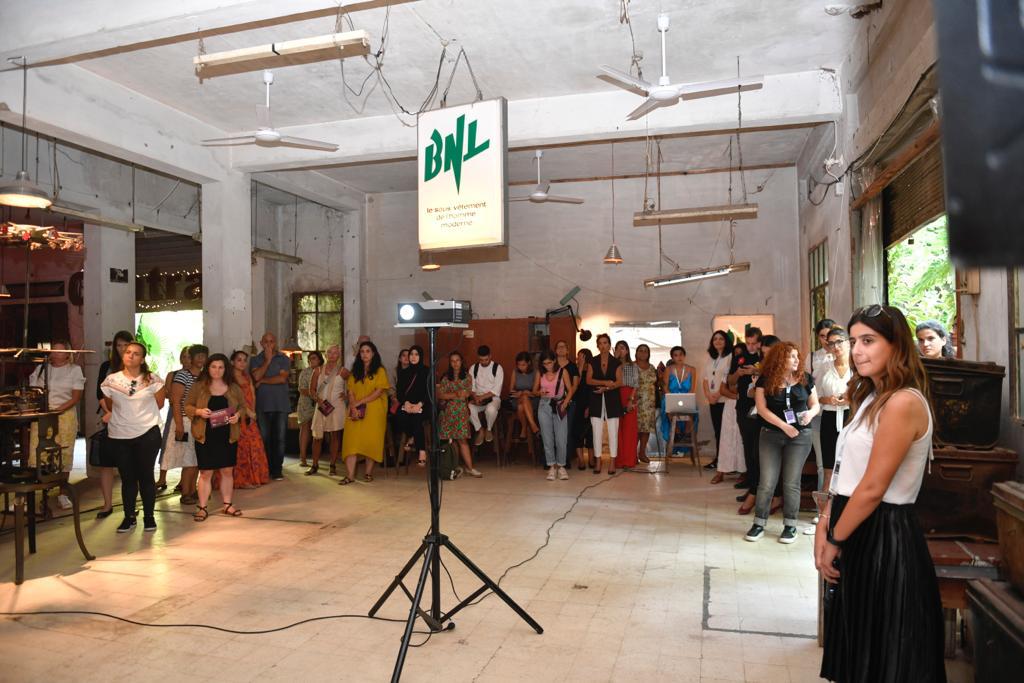
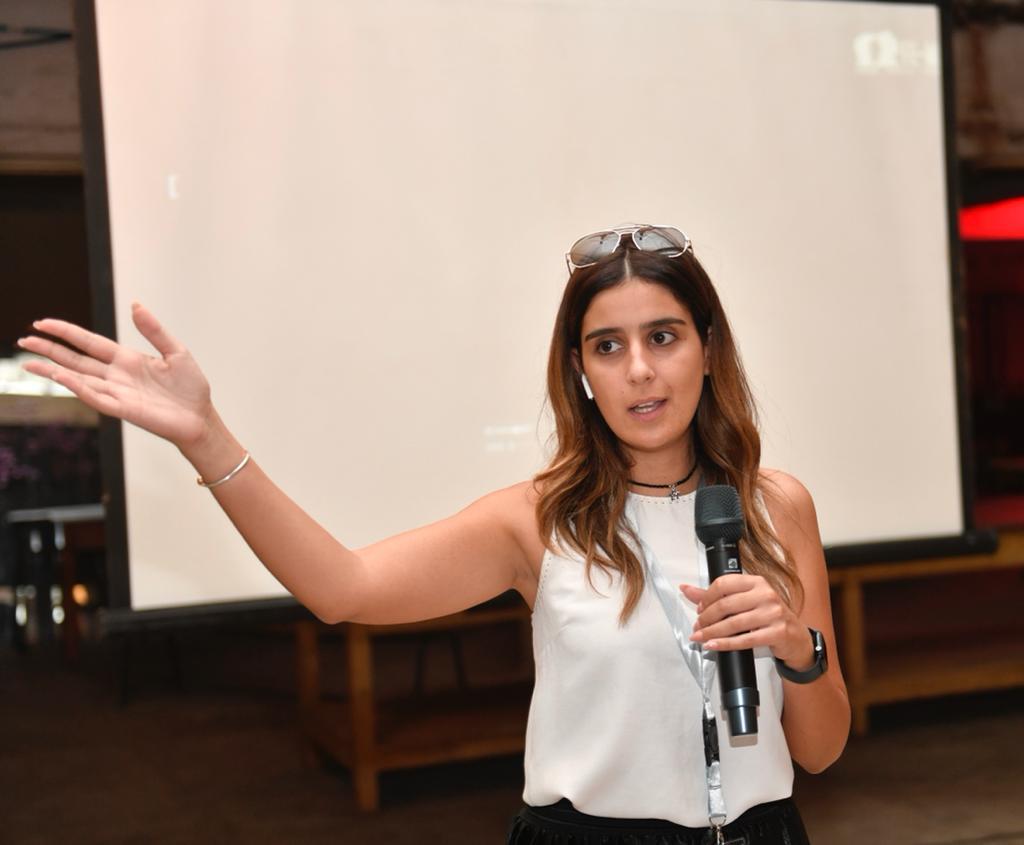
During the event, a series of videos for the outcome of the activities of the project were screened including messages and stories of the women who were on the frontlines of the response for the 4th of August and others who were marginalized, excluded, got injured and lost their businesses and/or families as a result of this disastrous blast.
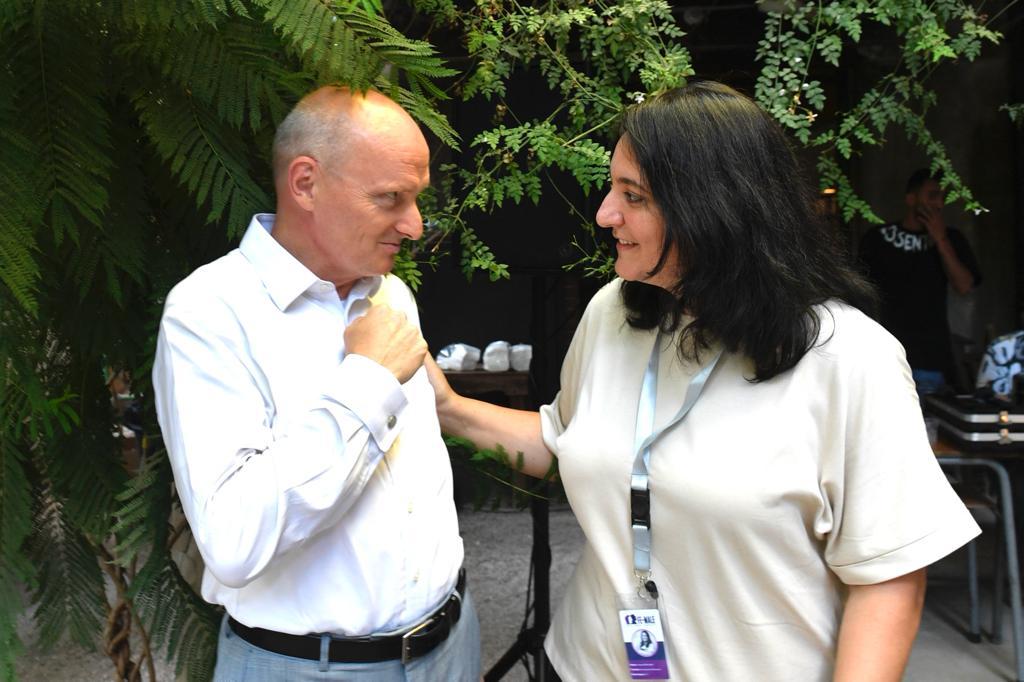 The executive director of Fe-Male Hayat Mirshad opened the event with a speech that highlighted Fe-Male’s work and response to the accumulating crisis of the project, the main results of the gender media audit produced, and the importance of mobilizing more efforts and support for the people who are still suffering from the explosion especially the most marginalized. Also, Hiba Abbani, representing UN Women Lebanon, delivered a speech emphasizing the importance of the WPHF fund and the initiatives launched through this support, its impact, and its results.
The executive director of Fe-Male Hayat Mirshad opened the event with a speech that highlighted Fe-Male’s work and response to the accumulating crisis of the project, the main results of the gender media audit produced, and the importance of mobilizing more efforts and support for the people who are still suffering from the explosion especially the most marginalized. Also, Hiba Abbani, representing UN Women Lebanon, delivered a speech emphasizing the importance of the WPHF fund and the initiatives launched through this support, its impact, and its results.
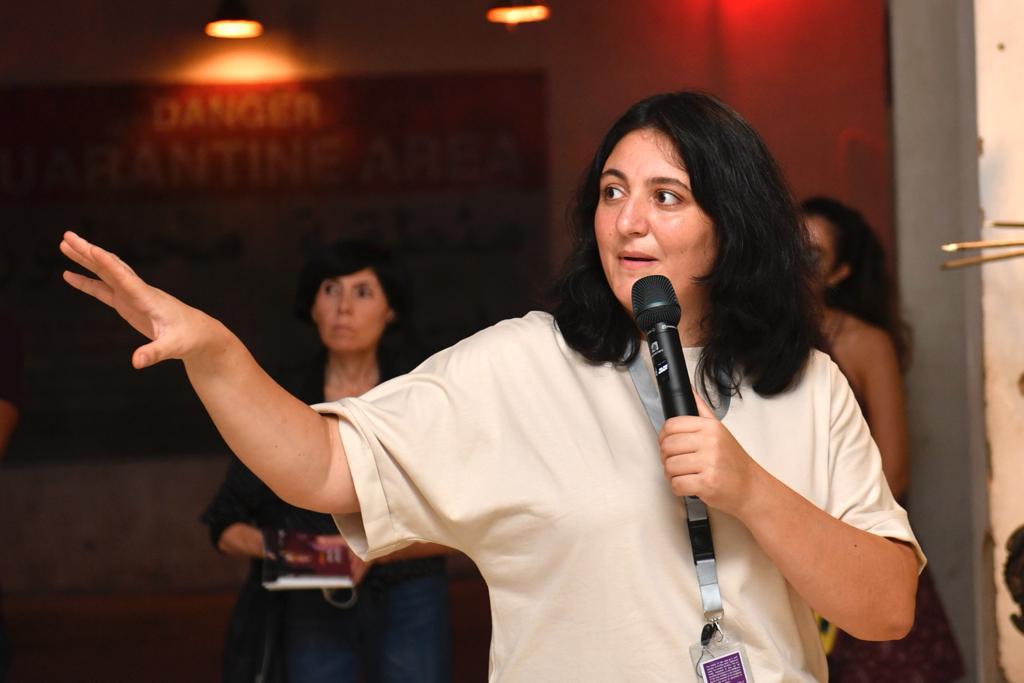
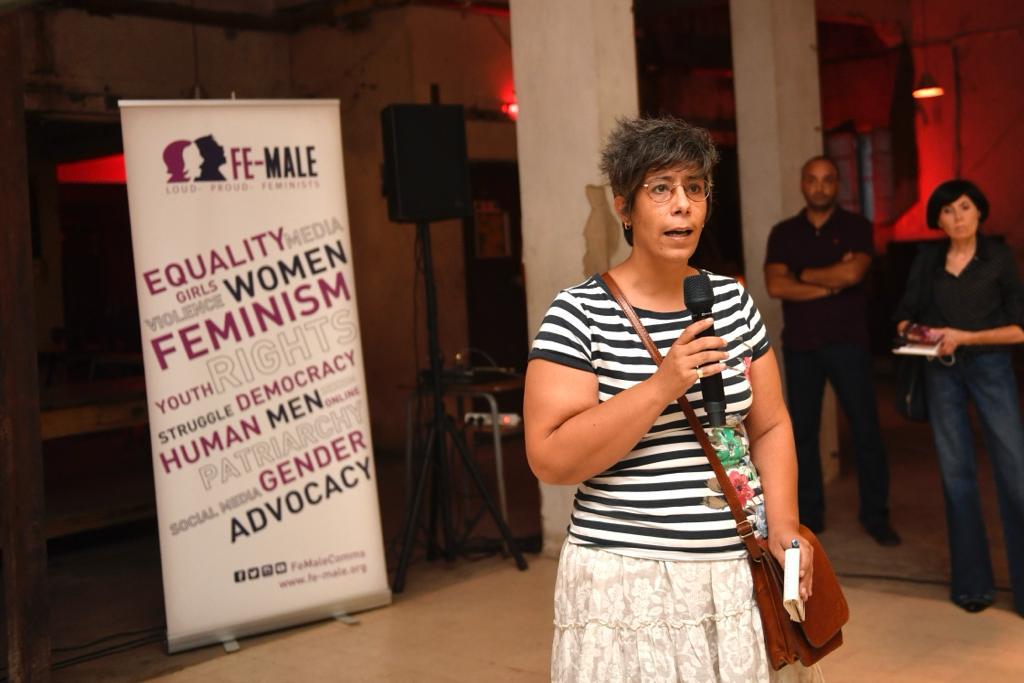 After that, the roundtable discussion started, where Dr. Halima Kaakour stated that “Gender aspect awareness is the most crucial during these hard times, in all crisis mode around the world marginalized groups pay the price, especially women.” In addition to that she talked about women’s participation in decision-making and elaborated that due to the sectarianism in the system and the patriarchy, women aren’t able to reach decision-making positions.”
After that, the roundtable discussion started, where Dr. Halima Kaakour stated that “Gender aspect awareness is the most crucial during these hard times, in all crisis mode around the world marginalized groups pay the price, especially women.” In addition to that she talked about women’s participation in decision-making and elaborated that due to the sectarianism in the system and the patriarchy, women aren’t able to reach decision-making positions.”
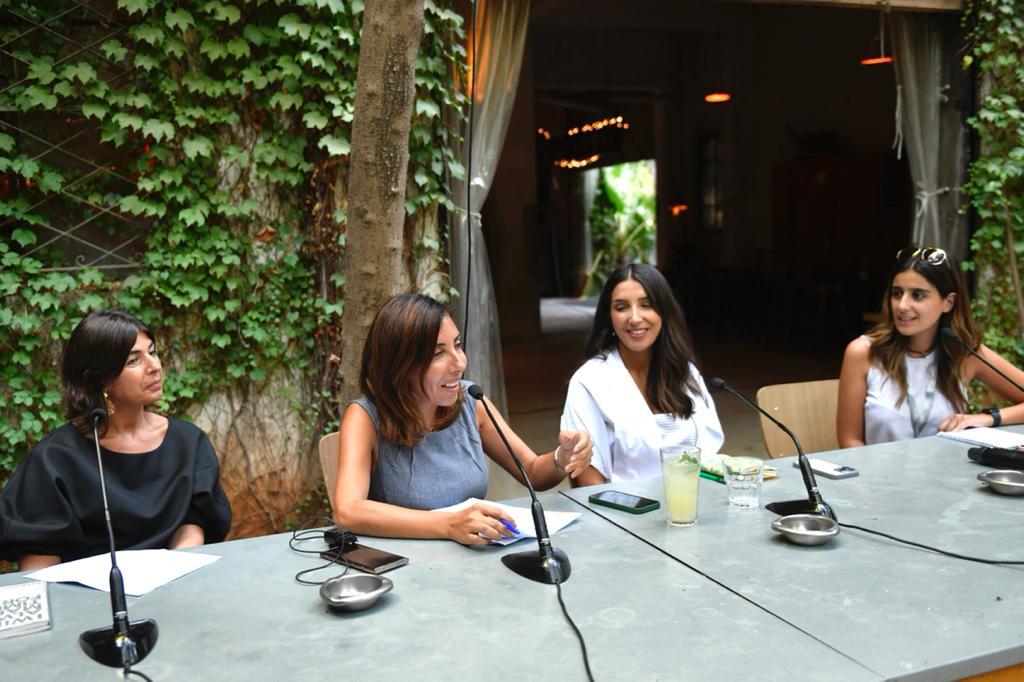
Also, Maryam Sfeir stressed on the role of non-profit and feminist organizations in supporting women, and the importance of documenting the stories of the women and sharing them, in addition to that, she called the donors to sustain funds for women’s rights issues and set a localized agenda that considers women’s needs and rights as a priority. Sfeir, spoke as well about the new issue of the Al Raida, a magazine prepared and distributed by the AIW, which is dedicated the documenting the experiences of the marginalized groups and the grassroots feminist mobilizations during and after the Beirut blast.
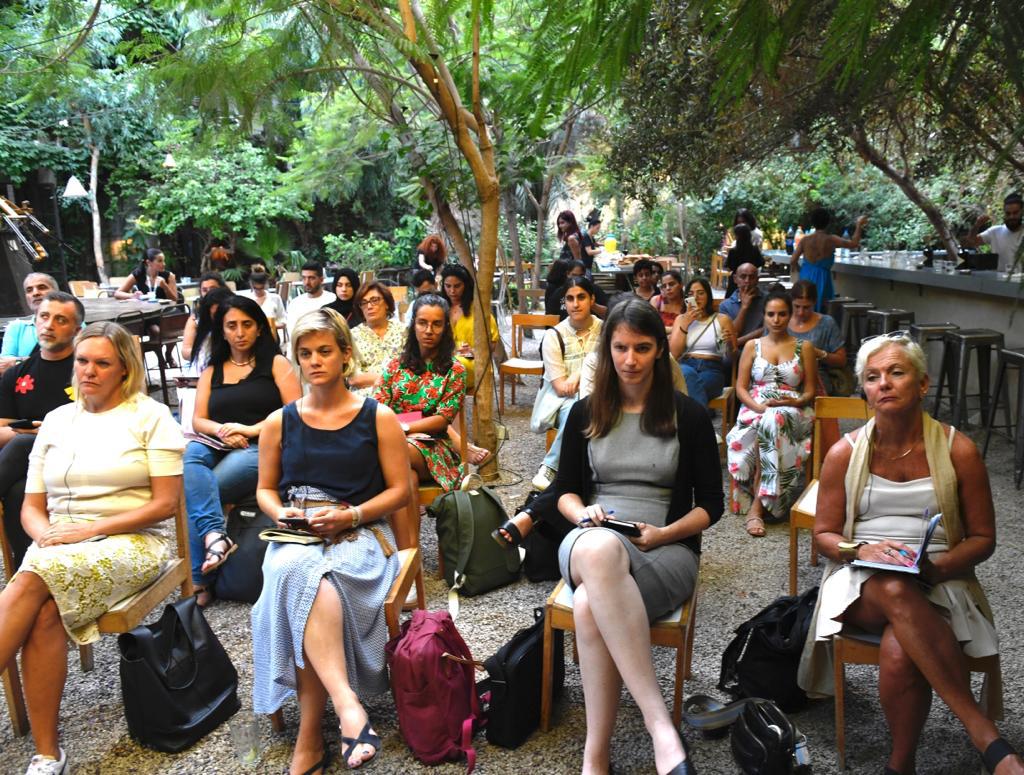 In her turn, journalist Sobhiya Najjar evaluated the Lebanese media coverage of the crisis, mainly the Beirut blast, from a gender perspective and talked about the challenges that face the journalists who report from the field during dangerous situations without any protection, or any specified guidelines. Sobhiya suggested that “A clear guidelines for coverages must be prepared and followed for the media work and sector in Lebanon, taking into consideration the gender aspect”.
In her turn, journalist Sobhiya Najjar evaluated the Lebanese media coverage of the crisis, mainly the Beirut blast, from a gender perspective and talked about the challenges that face the journalists who report from the field during dangerous situations without any protection, or any specified guidelines. Sobhiya suggested that “A clear guidelines for coverages must be prepared and followed for the media work and sector in Lebanon, taking into consideration the gender aspect”.
